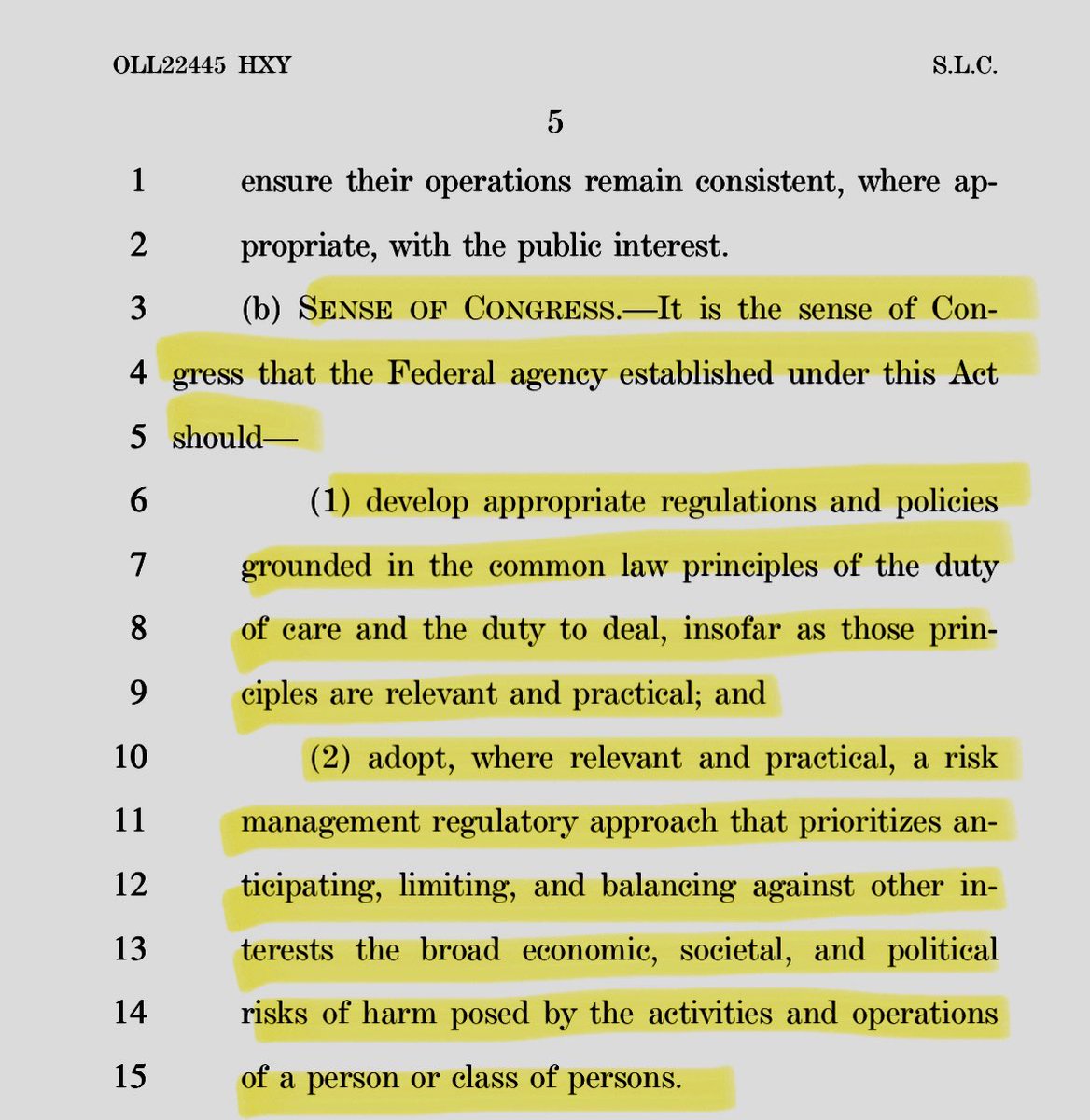🚨🧵 If approved by Congress, a recently introduced Senate bill by Sen. Michael Bennet would establish a federal commission responsible for monitoring Americans' speech for instances of “misinformation” and “hate speech”.
S.4201 Digital Platform Commission Act
S.4201 Digital Platform Commission Act

The newly proposed commission, the Federal Digital Platform Commission, would consist of five commissioners who would be appointed by the President and confirmed by the U.S. Senate. 

Under the proposed bill, the Commission would form a ‘Code Council’ comprising 18 members, which would establish ‘enforceable behavioral codes’ on social media platforms and AI, including ‘disinformation’ experts. 

If this bill is passed, the new Federal Digital Platform Commission would have ‘Plenary Jurisdiction’ over any digital platform that operates in the United States or has an impact on interstate or foreign commerce. 

The proposed bill is aiming to establish regulatory measures to ‘anticipate’ and manage risks associated with the economic, societal, and political impacts of an individual or group's actions. 

The bill outlines the purposes & objectives of the Commission in regulating digital platforms in the United States.
It aims to serve the public interest, provide access & opportunities, encourage competition & innovation, maintain a diverse market, while ensuring transparency.
It aims to serve the public interest, provide access & opportunities, encourage competition & innovation, maintain a diverse market, while ensuring transparency.

After reading this bill, it lacks measures to safeguard freedom of speech & prevent the commission's regulations from violating individuals' constitutional rights.
It relies on government-appointed “experts” who may end up monitoring state-sanctioned narratives and policies.
It relies on government-appointed “experts” who may end up monitoring state-sanctioned narratives and policies.
The American public should rightfully question political biases when experts are given special privileges.
Especially now, given the current negligence, incompetence, & corruption displayed by the government in their recent efforts to police the internet for ‘misinformation’.
Especially now, given the current negligence, incompetence, & corruption displayed by the government in their recent efforts to police the internet for ‘misinformation’.
Free speech is fundamental to a healthy republic and an open society.
When there are insufficient protections for free speech online or in general, it can have a number of negative consequences that impact public knowledge, online discourse, and creativity.
When there are insufficient protections for free speech online or in general, it can have a number of negative consequences that impact public knowledge, online discourse, and creativity.
The new bill being introduced, as of 05/18/2023 is:
S.1671: “A bill to establish a new Federal body to provide reasonable oversight and regulation of digital platforms.”
congress.gov/bill/118th-con…
S.1671: “A bill to establish a new Federal body to provide reasonable oversight and regulation of digital platforms.”
congress.gov/bill/118th-con…
• • •
Missing some Tweet in this thread? You can try to
force a refresh

















